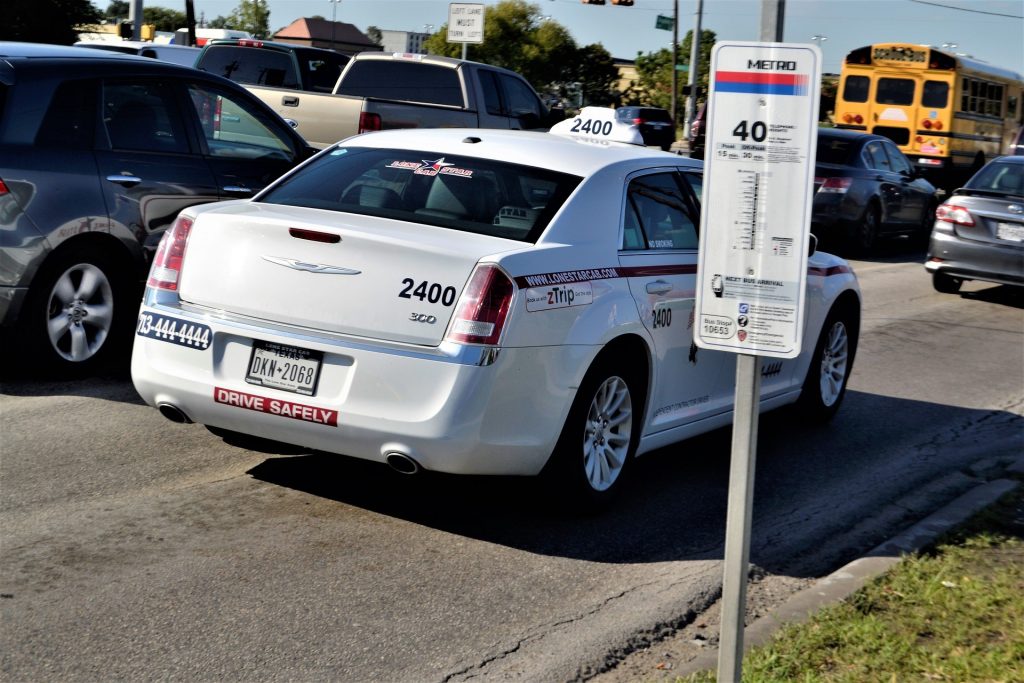 Around 9am on Saturday, October 12 the Hard Rock Hotel partially collapsed over Canal Street in New Orleans after the top six to eight floors buckled onto the structure. According to New Orleans Fire Department Superintendent Tim McConnel, the remaining structure of the building remains unstable and could possibly collapse entirely. In response, nearby buildings have been evacuated as the two construction cranes are also unstable. Currently, one person has been reported dead, eighteen have been taking to the hospital in unspecified conditions, and two workers are still reported missing. In terms of the next steps to be taken, it is unknown just how long it will take crews to clean up the piles of debris and get the project back on schedule. This is particularly stressful for the city of New Orleans considering the site of the collapse is a major transportation hub for the city – consisting of bus and streetcar lines in addition to the major traffic arteries of the city. An accident such as the Hard Rock Hotel accident will impact much more upon closer inspection spanning to issues such a personal injury, workers compensation, wrongful death, and much more. Considering the complex litigation that can arise out of an incident such as this one it is important to have a good attorney at the ready.
Around 9am on Saturday, October 12 the Hard Rock Hotel partially collapsed over Canal Street in New Orleans after the top six to eight floors buckled onto the structure. According to New Orleans Fire Department Superintendent Tim McConnel, the remaining structure of the building remains unstable and could possibly collapse entirely. In response, nearby buildings have been evacuated as the two construction cranes are also unstable. Currently, one person has been reported dead, eighteen have been taking to the hospital in unspecified conditions, and two workers are still reported missing. In terms of the next steps to be taken, it is unknown just how long it will take crews to clean up the piles of debris and get the project back on schedule. This is particularly stressful for the city of New Orleans considering the site of the collapse is a major transportation hub for the city – consisting of bus and streetcar lines in addition to the major traffic arteries of the city. An accident such as the Hard Rock Hotel accident will impact much more upon closer inspection spanning to issues such a personal injury, workers compensation, wrongful death, and much more. Considering the complex litigation that can arise out of an incident such as this one it is important to have a good attorney at the ready.
Personal injury lawsuits can arise out of many different circumstances – car accidents, slip and falls, and even injuries on the job. When filing a personal injury case it is incredibly important to have a knowledgeable attorney because filing a personal injury claim too late or even waiting too long to collect damages can result in having your personal injury claim denied. It is important to be persistent in personal injury cases and staying on top of filing deadlines and dates and having a diligent advocate can makes a difference in your case.
Workers compensation is intended to pay for the medical expenses of injured workers and provide a remedy for lost wages. However, workers compensation claims are often complex from start to finish. There are cases in which it can be difficult to determine if someone is considered an ‘employee’ despite being injured while working on a project. This is especially prevalent if a contractor hires subcontractors in order to complete a project. Moreover, it can also be difficult to receive your workers compensation payments with companies often being uncooperative in the workers compensation process.
 Louisiana Personal Injury Lawyer Blog
Louisiana Personal Injury Lawyer Blog


 When an unexpected accident occurs, it can be difficult to pinpoint exactly who is responsible for the injury. In the absence of direct evidence of a violation of a duty, the existence of multiple possible parties who might be responsible can preclude recovery.
When an unexpected accident occurs, it can be difficult to pinpoint exactly who is responsible for the injury. In the absence of direct evidence of a violation of a duty, the existence of multiple possible parties who might be responsible can preclude recovery.  The doctrine of peremption can prevent someone from bringing legal action against someone should that action be brought after a certain amount of time. Peremption is a period of time fixed by law for the existence of a right.
The doctrine of peremption can prevent someone from bringing legal action against someone should that action be brought after a certain amount of time. Peremption is a period of time fixed by law for the existence of a right. Providing preferential seating to disabled customers is a great service most businesses provide. This also means that the wheelchairs, walkers, and other items the disabled customers must be stored in areas that provide a safe walking environment for other customers. The controversy surrounding where it is proper or improper to put these items was illustrated in a case where a Baton Rouge Casino was sued by a woman who tripped over the walker of a disabled customer. With the help of an excellent attorney, the Casino was able to prove it seated a disabled gentleman properly when the woman sued the casino after her fall.
Providing preferential seating to disabled customers is a great service most businesses provide. This also means that the wheelchairs, walkers, and other items the disabled customers must be stored in areas that provide a safe walking environment for other customers. The controversy surrounding where it is proper or improper to put these items was illustrated in a case where a Baton Rouge Casino was sued by a woman who tripped over the walker of a disabled customer. With the help of an excellent attorney, the Casino was able to prove it seated a disabled gentleman properly when the woman sued the casino after her fall. If you get hurt due to someone else’s negligence and they agree to cover the costs, how much time do you have to sue for damages? According to Louisiana’s Second Circuit Court of Appeal, you have one year from when the injury occurred or when prescription is interrupted. Typically, prescription refers to land rights, but in Mr. Bethley’s case, it concerns the defendant’s agreement to pay his medical bills.
If you get hurt due to someone else’s negligence and they agree to cover the costs, how much time do you have to sue for damages? According to Louisiana’s Second Circuit Court of Appeal, you have one year from when the injury occurred or when prescription is interrupted. Typically, prescription refers to land rights, but in Mr. Bethley’s case, it concerns the defendant’s agreement to pay his medical bills. Can a store, like Lowe’s or Home Depot, be held liable for injuries resulting from the sale of the wrong part or product? In Ms. Johnson’s case, the answer was no. Sharon Johnson’s lawn mower needed a new spark plug, so she went to the Lowe’s in Shreveport to find one. Because Ms. Johnson was unsure about the type of spark plug she needed, she asked a sales associate to help her. The sales associate researched the spark plug that she needed, she purchased it, and returned home to install the part.
Can a store, like Lowe’s or Home Depot, be held liable for injuries resulting from the sale of the wrong part or product? In Ms. Johnson’s case, the answer was no. Sharon Johnson’s lawn mower needed a new spark plug, so she went to the Lowe’s in Shreveport to find one. Because Ms. Johnson was unsure about the type of spark plug she needed, she asked a sales associate to help her. The sales associate researched the spark plug that she needed, she purchased it, and returned home to install the part. When representing clients, attorneys walk a fine line between providing adequate services for their clients and being potentially sued by their clients for legal malpractice. While there are legitimate cases of malpractice among attorneys, there are also allegations of malpractice that simply lack merit and are based upon anger from a dissatisfied client.
When representing clients, attorneys walk a fine line between providing adequate services for their clients and being potentially sued by their clients for legal malpractice. While there are legitimate cases of malpractice among attorneys, there are also allegations of malpractice that simply lack merit and are based upon anger from a dissatisfied client.  We have a reasonable expectation that public shopping areas will be free from dangerous hazards. Most stores even have policies regarding safety procedures. However, these safety procedures are not allows followed and injuries often result. Unfortunately, this is exactly what happened to Michelle Gauthier while shopping at a Dollar Tree Store.
We have a reasonable expectation that public shopping areas will be free from dangerous hazards. Most stores even have policies regarding safety procedures. However, these safety procedures are not allows followed and injuries often result. Unfortunately, this is exactly what happened to Michelle Gauthier while shopping at a Dollar Tree Store. Accidents happen – both on the job and when going about regular life.
Accidents happen – both on the job and when going about regular life. Every business which opens its doors to the public owes a duty of care to their patrons, a duty to make sure the patron is safe and free from harm. Often, this is as simple as keeping walkways clear and ensuring spills and other hazards are cleaned up in a timely fashion. But what most businesses have never contemplated is a possibility that the duty of care would be owed to something other than a real, live, breathing person. Could the persons to which a merchant owes a duty of care include “juridical” personhood, such as a corporation or a limited liability company (L.L.C.)? In this instance, the answer was, “no.”
Every business which opens its doors to the public owes a duty of care to their patrons, a duty to make sure the patron is safe and free from harm. Often, this is as simple as keeping walkways clear and ensuring spills and other hazards are cleaned up in a timely fashion. But what most businesses have never contemplated is a possibility that the duty of care would be owed to something other than a real, live, breathing person. Could the persons to which a merchant owes a duty of care include “juridical” personhood, such as a corporation or a limited liability company (L.L.C.)? In this instance, the answer was, “no.”